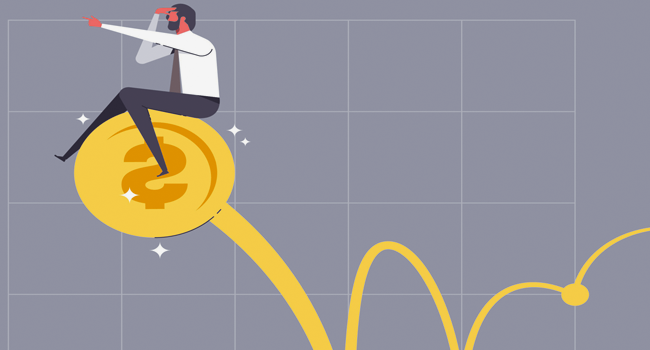How to become a Forex trader
Foreign exchange, commonly referred to as Forex or FX, is the largest financial market in the world. With over $5 trillion traded daily, it presents a lucrative opportunity for those looking to invest their money and profit. However, becoming a Forex trader is challenging and requires time, effort, and dedication. This article will outline some steps to becoming a Forex trader.
Understand the basics:
Before you start trading, understanding the Forex market’s basics is essential. This includes learning about currency pairs, pips, spread, leverage, and margin. It would help you familiarize yourself with the different trading strategies and the factors affecting currency prices. You can find a lot of information on the internet, including books, courses, and tutorials, to help you understand Forex trading.
Get a good broker:
A broker is a middleman that connects you to the Forex market. It is essential to choose a reliable and trustworthy broker that will offer you the best trading conditions, including low spreads, fast execution, and good customer support. You should also ensure that the broker is regulated by a reputable regulatory authority, such as the UK’s Financial Conduct Authority (FCA) or the US Commodity Futures Trading Commission (CFTC).
Practice with a demo account:
Once you have chosen a broker, you should practice trading on a demo account. A demo account allows you to trade in a simulated environment using virtual money. It is an excellent way to test your trading strategies without risking real money. You can also use a demo account to familiarize yourself with the trading platform and the features offered by the broker.
Develop a trading plan:
A trading plan is a set of rules you follow when trading Forex. It should include your goals, trading strategy, risk management, and money management plan. Your trading plan should reflect your personality, style, and risk tolerance. Sticking to and staying within your trading plan is essential, as this can lead to emotional trading and poor decision-making.
Start small:
When you start trading, it is essential to start small and not risk too much capital. This will help you to manage your risk and avoid significant losses. It would help to use proper risk management techniques, such as setting stop-loss orders and taking profits at predetermined levels. It is also essential to manage your emotions when trading and not let fear or greed dictate your decisions.
Keep a trading journal:
Keeping a trading journal is a great way to track your progress and learn from your mistakes. It would help if you recorded all your trades, including the entry and exit points, the reasons for entering the trade, and the trade outcome. This will help you identify trading patterns and improve your trading strategies.
Continuously learn:
Forex trading is a continuous learning process, and staying up-to-date with the latest market developments and trading strategies is essential. You should read trading blogs, attend webinars and seminars, and join trading communities to stay informed and learn from other traders. You can also use technical analysis tools and economic calendars to analyze the market and make informed trading decisions.
Be patient and disciplined:
Forex trading requires a lot of patience and discipline. You should wait to become a profitable trader and be prepared to face losses and setbacks. It is essential to remain disciplined and stick to your trading plan, even when the market is volatile or unpredictable. You should also have realistic expectations and not be greedy or risk too much capital.
Evaluate your performance:
Finally, evaluating your performance regularly and adjusting your trading plan accordingly is essential. Review your trading journal and analyze your trades to identify areas to improve. You can also use trading metrics, such as win rate, risk-reward ratio, and expectancy, to evaluate your performance and measure your progress.
Additionally, it is worth mentioning that there are different approaches to Forex trading, including fundamental analysis and technical analysis. Fundamental analysis involves analyzing economic and political events that affect currency prices, while technical analysis involves analyzing price charts and using technical indicators to identify trends and patterns. Choosing an approach that suits your trading style and personality is essential.
Furthermore, being aware of the different trading platforms and tools your broker offers is essential. Most brokers offer a variety of trading platforms, including desktop, web-based, and mobile platforms, as well as a range of trading tools, such as charting tools, trading signals, and automated trading systems. It is essential to choose a platform and tools that are user-friendly and meet your trading needs.
Here are a few more tips for becoming a Forex trader:
Manage your risk: Risk management is a critical aspect of Forex trading. It would help if you always used stop-loss orders to limit potential losses and avoid overtrading or risking too much of your capital on a single trade.
Keep up with the news: Economic and political news can significantly impact currency prices, so staying informed and up-to-date with the latest news and events that could affect your trades is essential.
Focus on consistency: Successful Forex trading concerns consistency and long-term performance rather than short-term gains. It is better to make small profits consistently over time than to aim for big profits quickly and risk losing your capital.
Don’t let emotions control your trading: Forex trading can be emotionally challenging, and it is essential to keep your emotions in check and avoid making impulsive or irrational decisions based on fear, greed, or hope.
Learn from your mistakes: Every trader makes mistakes, and it is essential to learn from your mistakes and use them to improve your trading skills and strategies.
Join a trading community: Joining a Forex trading community can be a great way to learn from other traders, share ideas and strategies, and stay motivated and accountable.
Stay disciplined and patient: Forex trading requires discipline, patience, and persistence. You should stick to your trading plan, avoid chasing profits, and be prepared to wait for the right opportunities.
Conclusion: Successful Forex trader requires time, effort, and dedication. It is essential to understand the market basics, choose a reliable broker, practice with a demo account, develop a trading plan, start small, keep a trading journal, continuously learn, be patient and disciplined, and evaluate your performance regularly. With the right mindset and approach, anyone can become a successful Forex trader and achieve their financial goals.


